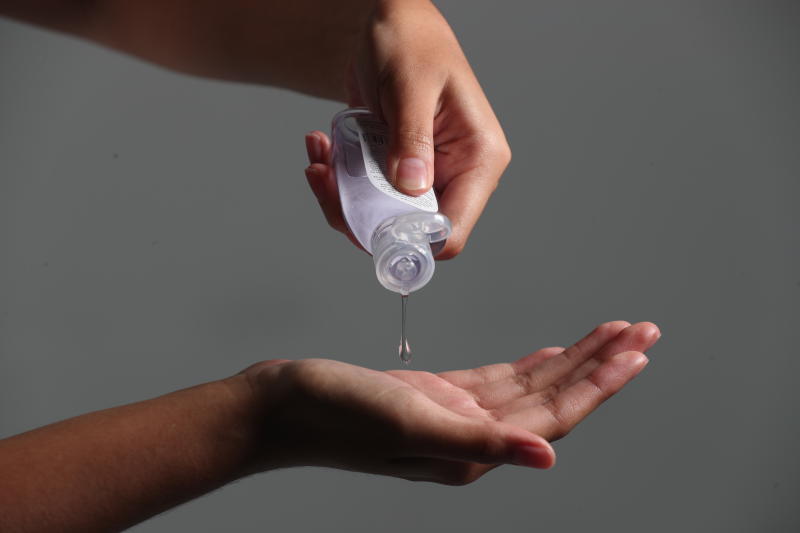Coronavirus: How disinfectants and hot, humid weather can keep virus away
Sign up now: Get ST's newsletters delivered to your inbox

Disinfectants and alcohol-based sanitisers help to make a virus unviable by breaking the membrane.
PHOTO: ST FILE
SINGAPORE - It may take more than an apple to keep this bug away.
As the number of patients infected with the novel coronavirus (2019-nCoV) originating in Wuhan, China, grows in Singapore, people have been advised to practise good personal hygiene, avoid crowds and hang out in well-ventilated rooms instead of air-conditioned ones.
But how exactly do these techniques "kill" free-floating viruses in the environment?
The Straits Times speaks with Professor Wang Linfa, director for the programme in emerging infectious diseases at the Duke-NUS Medical School.
'KILLING' THE VIRUS
Under a microscope, coronaviruses like the 2019-nCoV appear spherical, with a "crown" of spikes on their surface.
For it to start to infect its host, this structure has to be intact, said Prof Wang.
Various measures, such as exposing the virus to heat or through the use of disinfectants, break this structure, rendering the virus impotent and unable to infect its host.
For instance, a virus left under the sun could cause it to dry out, causing the membrane to tear, and this would make it unviable, said Prof Wang.
Because free-living parasites are technically not living things, they cannot be "killed", which is why scientists refer to "killed" viruses as being "unviable" or "non-infectious" instead.

Professor Wang Linfa, director for the programme in emerging infectious diseases at the Duke-NUS Medical School.
As the 2019-nCoV is a new virus that scientists learnt about only a month or so ago, many things about it still remain a mystery.
But preliminary studies suggest that it shares similar traits with other viruses.
For instance, like other viruses that cause respiratory illnesses such as influenza, the 2019-nCoV seems to prefer cool, dry climates.
Luckily, Singapore's tropical weather is naturally not conducive for them, which is why scientists recommend people hang out in non-air-conditioned rooms.
Prof Wang said the spikes on the virus' surface are essentially made of proteins, which are susceptible to being destroyed, or denatured, by heat or the sun's ultra-violet rays.
When these spikes are destroyed, viruses lose their ability to latch on to a human host cell.
Similarly, disinfectants and alcohol-based sanitisers help to make a virus unviable by breaking the membrane.
Prof Wang said the likelihood of a free-floating virus in the environment infecting a human is actually low, because it can be made unviable through many processes.
But the chances of infection go up when there are more of such virus particles floating about, in an enclosed room for example.


